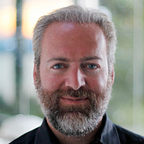Books to Expand Your Perspective
Over the course of the last year since leaving Twitter to take some time off, I’ve managed to catch up on a ton of reading. Real reading. Actual books!
I don’t think I’ve read more than a few books a year since I was a kid, but in the last 12 months, I’ve managed to keep a healthy pace of 2 or 3 per month. Two books have stood above the rest in terms of expanding my understanding and perspective of how the world works:
- A People’s History of the United States by Howard Zinn.
One of the birthrights of growing up in the United States is that you are indoctrinated at a young age with a very rosy version of America’s history: the journey of a group of people seeking freedom, discovering territory, declaring independence, drafting a benevolent Constitution, and then over the course of the next few hundred years, building America into what it is today.
While a lot of it is true, it is written from the perspective of “the victors” (as most history is). This book takes the opposite approach, instead opting to tell the story of our country through the lens of those who’ve been taken advantage of (i.e. Native Americans, women, slaves, immigrants, minorities, the poor, and even what we think of as “the middle class”). The author admits that just as textbooks are biased in one direction, his book is likely biased in the opposite direction, but the point is to better balance our view of how America began, what our behavior has been like throughout the course of our history, and what power dynamics continue to shape our society.
I might go so far as to say this is the most important book I’ve ever read. If we are going to get through the next few years and beyond, it’s important that everyone have a sober perspective on how we got here, and the tensions that have been around from the very beginning. - Guns, Germs, and Steel by Jared Diamond
Speaking of “how we got here”, this book rewinds the clock even further, explaining how modern humans evolved from Homo Erectus to a (mostly) intelligent species spanning every continent on earth. The emphasis is less on physiological evolution and more on the sociological advances that enabled us to live as we do today.
There is a good amount of material on agriculture, the invention most responsible for our modern way of living, but there are also fascinating storylines about why certain groups of people ended up where they did (e.g. Africans in Africa, Europeans in Europe, etc).
If you want to get caught up on the story of humans in a single book, this is the one to read.
What’s Next
Jason Kottke had an interesting post which linked to two reading lists from a guy named Cass Sunstein, who worked under Obama and seems like a pretty well-rounded political scholar. The first list is 5 Books To Change Conservatives’ Minds, and the second list is 5 Books To Change Liberals’ Minds.
I am going to try and read all ten, and I won’t lie: I’m not exactly looking forward to it. 176 pages from Antonin Scalia isn’t the sort of thing that gets me up in the morning. But I guess that’s the point!
To make things easier, I’m going to tackle this in machete order. Left, right, left, right, until they are all vanquished. If you’d like to do the same, I sorted them into two public lists — left and right — ordered by number of reviews. Might as well read the popular ones first.
Will report back when I’m done. Happy reading, people!
